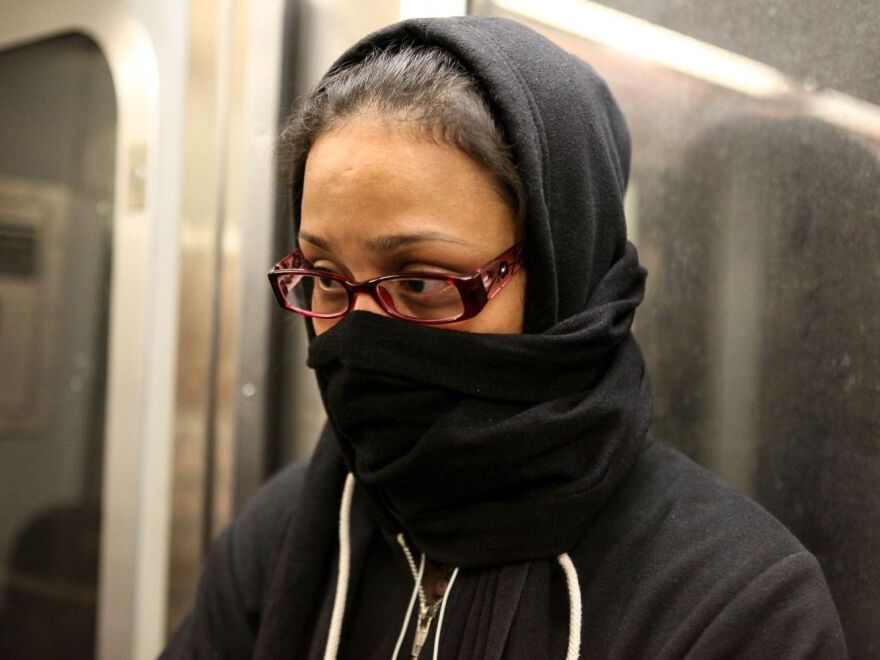A little-seen force has fanned out across New York City intent on stopping the spread of Ebola virus – disease detectives go looking for contacts who might be infected.
"They're just really good at finding people," says Denis Nash. He worked for the Centers for Disease Control and Prevention and the New York City Health Department, tracing the spread of HIV and West Nile virus. He says these trained applied epidemiologists are experts at finding almost anybody, with only a vague description.
"A person can say, 'You know, he's a light-skinned guy who hangs out on this corner with a freckle,'" Nash said, "and these disease intervention specialists will go and find them and let them know they may be exposed and they need to be tested."
Nash is now at the City University of New York School of Public Health with Dr. Lorna Thorpe, a tuberculosis specialist who also worked for the CDC and was the city Health Department's deputy commissioner of epidemiology. Neither of them has any inside knowledge of the current investigations of Ebola. But Thorpe says you can bet there's one strategy that trumps almost all others: "You need to prioritize," she says.
In TB investigations, Thorpe began by focusing on households, work and other contacts. She and her colleagues would start with the first person infected, or "index patient," and work their way out.
"We would literally draw concentric circles and then prioritize accordingly, because you can't expend all your human resources chasing everybody," she explains.
The searchers don't swing into action only when a headline-grabbing disease emerges. Every day they're investigating the spread of sexually transmitted diseases, tuberculosis, measles and other contagious illnesses.
"They can't stop doing TB surveillance and TB contact tracing because there's an Ebola outbreak going on," Nash says. "So it's all about trying to manage the whole big picture, which is really hard."
That being said, this Ebola outbreak has some things going for it that make it easier to deal with than other outbreaks. First of all, Ebola is transmitted only by direct contact with bodily fluids. Nash says that's different than a lot of illnesses, like the measles.
"There have been cases of people not even being in the same room as a measles case contracting the infection, because it's so infectious and airborne," he says. "This is so worlds away from that."
Second, the index case is known in this instance. That's often very difficult to figure out. And thirdly, Thorpe says, Dr. Craig Spencer is the ideal index patient: an emergency physician knowledgeable about the disease he's contracted, who's been closely monitoring his own health.
"He came in early," she says. "The channel of communication between him, his employers, the Health Department and the medical facility seemed to be very efficient. By evening time, we had people in quarantine and the public had a deep knowledge of where he has been."
City officials say their focus is Spencer and the three other close contacts, but it's not clear how many other people they're reaching out to – if only to gather phone numbers and emails. Thorpe says that would depend on available manpower, but, typically, it would be useful to know the people in the next concentric circle or two out from the index patient, just to be safe.
This story is part of a reporting partnership between NPR, WNYC andKaiser Health News.
Copyright 2020 WNYC Radio. To see more, visit WNYC Radio.

